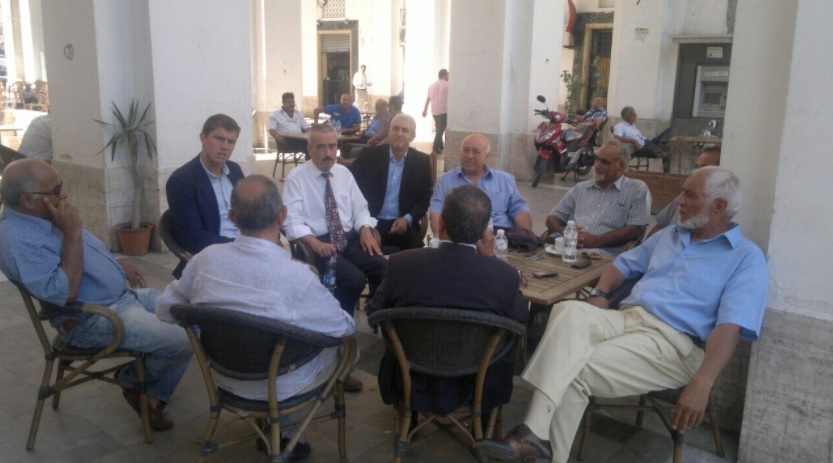I had coffee the other day in Algeria Square in
central Tripoli. I was passing by and was invited to sit with a group
of men who kindly offered me some local coffee. It was a good
opportunity to escape from the heat of the sun and hear their thoughts.
On Saturday I was in Benghazi. Here, I decided to have tea. Again, it was a chance to listen and learn.
You can’t understand a country unless you can meet
people and find out what is on their minds. In both Tripoli and
Benghazi, the people I spoke to had similar concerns. Number One is
security. In both cities, the situation is a calmer and quieter. But
it is fragile. People are rightly worried about the return of violence,
whether from terrorists, criminal gangs or militias.
The economy is also top of people’s agenda. It is
truly appalling to see long lines of people outside banks waiting
patiently and with great dignity to try to get some cash. The black
market rate of exchange and the rate of inflation also make the cost of
living increasingly difficult. And the long power cuts are making life
in many parts of the country a misery.
Life is tough for most Libyans. Yet what they
want is no different from what people want in any country: to live in
peace, put bread on their family’s table, educate their children and
know that they will be looked after if they get ill. Their designs,
desires and demands are the same as those felt by any person in a coffee
shop in London.
The 17 February revolution was supposed to bring
some sort of new normality to life in Libya. Huge sacrifices were made
to build a better life.
This was brought home to me dramatically by a man I
met at Tunis airport who told me that both his sons were killed in the
revolution, his wife died of a broken heart and his brother was killed
by Daesh. He called on me to stand by Libya.
Of course we stand by Libya. We helped protect
citizens in 2011 and we now want to help to bring peace and security to
the Libyan people.
Appeals for us to help were part of our
conversations in both Tripoli and Benghazi. The people I met all believe
that we have a duty to help and can do more.
There is a tricky challenge here. People demand
support from the international community but rightly reject interference
in their affairs. Of course: the future of Libya is for the Libyans to
decide. But there is a fine line between interaction and interference.
The role of the international community is clear.
Interaction means facilitating contact between Libyans, encouraging
agreement and then helping to implement it through the design and
delivery of programmes to help improve the lives of Libyans.
We are already involved in delivering benefits.
For example, we have funded the Stabilisation Facility for Libya that
has allowed the Government of National Accord to deliver ambulances,
fire engines, solar panels and other tangible benefits in Ubari,
Benghazi, Kikla and Sirte. This work will continue to help rebuild
destroyed communities.
The same support applies at political level: we
will support the new UN Special Representative Ghassan Salame to amend
and implement the Libya Political Agreement. He too will want to hear
the views of Libyans and understand how best to meet the needs of the
Libyan people.
Tripoli and Benghazi are the big cities. I have
also visited Misrata and Tobruq. But I want to go further and meet men
and women in all parts of Libya and hear their views. More coffee and
tea is on the menu.

No comments:
Post a Comment